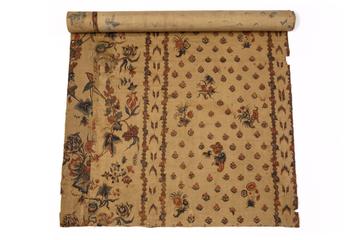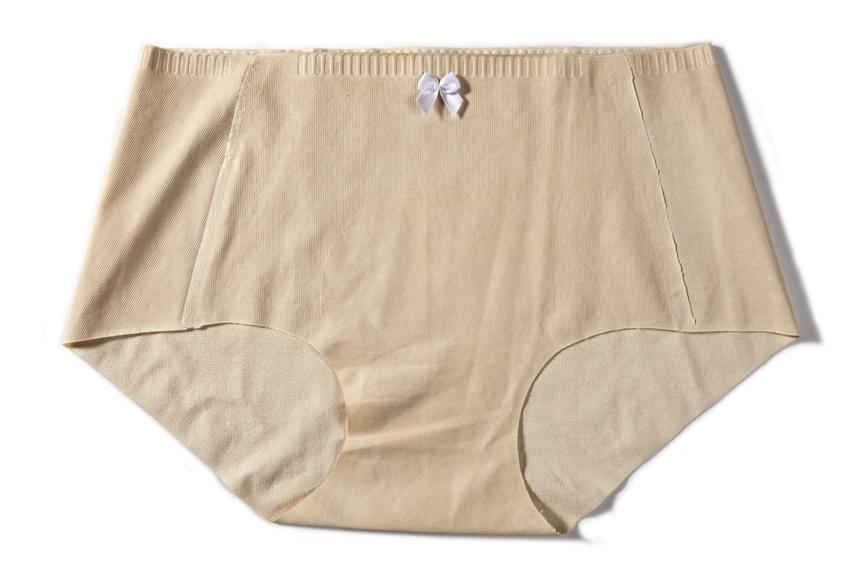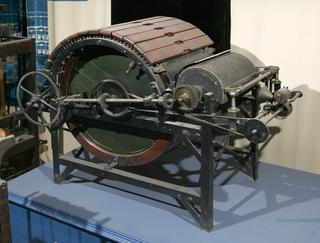

Briefs, made of Cosyflex fabric, manufactured by Tamicare, Rochdale, 2014. Cosyflex is made using additive manufacturing (3D printing).
3D printed techniques offer new ways to produce textiles.
Greater Manchester was once the centre of the world’s cotton industry and textile manufacturing. Following in this tradition, today it is at the forefront of new inventions and innovations in the textile industry. Cosyflex, the world's first process for 3D printing finished textile products, was designed and developed in Manchester. Tamicare products are part of a trend to use technology to create a more sustainable textile industry.
Tamar Giloh is the co-founder and CEO of Tamicare Limited and the inventor of Cosyflex. Tamar, born and educated in Israel, is inventor and co-inventor of a significant part of the company's innovations.
Tamicare’s process involves the fast layering of short textile fibres and waterborne polymers. The fabric is built up in layers by a spray jet over a few seconds. Using polymers, pigments, additives, and short textile fibres, the fabric is printed onto a baseplate of the specified design.
Tamicare cite the sustainability aspect of their technology as one of the benefits to 3D printed textile. Water usage is one of the major challenges of growing and processing cotton for the textile industry. Tamicare’s production method uses a fraction of the water needed for cotton production. Other benefits include “no cut, no waste”; there is virtually no scrap fabric created, therefore less raw materials are used. Recycled and bio-based ingredients are used. The garments can be made in one location without transporting and warehousing material during the production stage.
Details
- Category:
- Textile Industry
- Object Number:
- 2015-2015
- Measurements:
-
overall: 270 mm x 420 mm x 5 mm,
- credit:
- Gift of Tamicare




